Shelter Music Boston celebrated and honored women composers with two complete programs in March and May of 2017.
This project provided our shelter and recovery center audiences with performances of
string quartets, string trios, and solo cello works by women composers.
After hearing this music one audience member wrote, “Thank you for performing the music of women.
If no one tells our story, how can we be a part of history?”
We are grateful to the Good People Fund and the Harvard Musical Association for support of this project.
This project provided our shelter and recovery center audiences with performances of
string quartets, string trios, and solo cello works by women composers.
After hearing this music one audience member wrote, “Thank you for performing the music of women.
If no one tells our story, how can we be a part of history?”
We are grateful to the Good People Fund and the Harvard Musical Association for support of this project.
Click here to listen to the String Quartets
Click here to listen to the String Trios and Cello Solos
Featured Composers

A native of Taiwan and born in 1970, Yu-Hui Chang began intensive music training in piano, voice, and music theory at the age of 6, and started seriously pursuing composition as a career at the age of 14. She came to the United States in 1994 and is now an Associate Professor at Brandeis University. Her music has been performed in the Netherlands, Italy, UK, Denmark, New Zealand, Australia, Asia, and throughout the U.S. and in numerous Shelter Music Boston concerts.
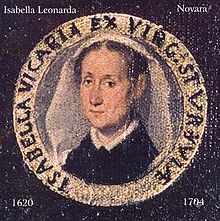
Anna Isabella Leonarda (6 September 1620 – 25 February 1704) was an Italian composer from Novara, in northern Italy. At age 16 she entered an Ursuline convent, where the nuns educated young girls and cared for the sick. Her published compositions, nearly 200, span a period of 60 years. Little is known about her as a singer or instrumentalist but she was one of the most prolific convent composers of her time. Almost all of Leonarda’s musical works carry a double dedication – one to the Virgin Mary as well as one to a highly placed living person. In one of her dedications, Leonarda stated that she wrote music not to gain credit in the world, but so that all would know that she was devoted to the Virgin Mary. The living dedicatees included those who provided financial support for the convent, the archbishop of Milan, the bishop of Novara, and Emperor Leopold I. She also noted in the dedication to Opus 10, which includes the work we will perform, that she wrote music only during time allotted for rest so as not to neglect her duties within the convent.
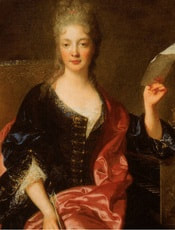
Elisabeth-Claude Jacquet de La Guerre (March 17, 1665—June 27, 1729) was the first woman to compose an opera in France! She was born into a family of musicians and master instrument-makers in Paris. A child prodigy, she received her initial musical education from her father and performed on the harpsichord at a young age before King Louis XIV. As a teenager she was accepted into the French court where her education was supervised by the king’s mistress, Françoise-Athénaïs,. In 1684 she married the organist Marin de La Guerre. After her marriage she taught, composed, and gave concerts at home and throughout Paris, to great acclaim. Jacquet de La Guerre composed in a wide variety of forms and was able to improvise “with tunes and harmonies of great variety and in quite the best possible taste, quite charming her listeners." In 1695 she composed a set of trio sonatas, one of which may be the work on our concert. During the next few years many of her near relations died, including her only son who was ten years old, her mother, father, husband, and brother Nicolas. In spite of this, she continued to perform and compose. The 1707 dedication of her work for harpsichord and violin, to King Louis XIV, indicates both that the King appreciated and supported her work.
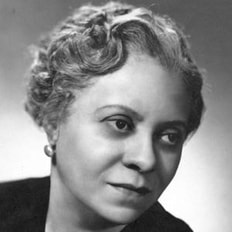
Florence Beatrice Smith Price (9 April 1887 - 3 June 1953) was born to Florence Gulliver and James H. Smith in Little Rock, Arkansas, one of three children in a mixed-race family. Despite racial issues of the era, her family was well respected within their community. Her father was a dentist and her mother was a music teacher who guided Florence's early musical training. By the time she was 14, Price was enrolled in Boston’s New England Conservatory of Music, with a major in piano and organ. Initially, she pretended to be Mexican to avoid the stigma people had towards African Americans at the time. She graduated in 1906 with honors. In 1912, she married Thomas J. Price, an attorney, and moved back to Little Rock. After a series of racial incidents in Little Rock, particularly a lynching that took place in 1927, the family moved to Chicago, where Price began a new and fulfilling period in her compositional career. Financial struggles led to a divorce in 1931, and Florence became a single mother to her two daughters. To make ends meet, she worked as an organist for silent film screenings and composed songs for radio ads under a pen name. During this time, Price lived with friends and eventually moved in with her student and friend, Margaret Bonds, also a black pianist and composer. This friendship connected Price with writer Langston Hughes and contralto Marian Anderson, both prominent figures in the art world who aided in Price's future success as a composer. Though her training was steeped in European tradition, her melodies were often blues-inspired. Her compositions reveal her Southern roots and, at the urging of her Boston mentor George Whitefield Chadwick, she incorporated elements of African-American spirituals. Her music was widely performed during her life but her output, comprising of over 300 compositions, remains largely unpublished. The work on our concert was arranged for string quartet by Anthony Green, a composer residing in Providence RI. Click here to listen to additional works by Price performed by SMB.

Kaija Anneli Saariaho, born 14 October 1952, is a Finnish composer. She studied composition in Helsinki, Freiburg and Paris, where she has lived since 1982. Some of her work combines live music with electronics and sound altered by computers. Saariaho has often talked about having a kind of synesthesia, where her synesthesia involves all of her senses. She has said:"...the visual and the musical world are one to me... Different senses, shades of color, or textures and tones of light, even fragrances and sounds blend in my mind. They form a complete world in itself." Saariaho is only the second female composer ever to have an opera performed at the Metropolitan Opera House in New York City; her "L'Amour de loin" (Love from afar) in 2016. "Sept papillons" (Seven Butterflies) was the first piece she wrote after completing that large-scale work.
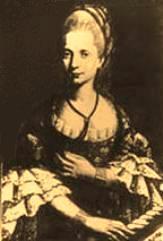
Maddalena Laura Lombardini Sirmen (9 December 1745 - 18 May 1818) was the only musician to emerge from her family and she became famous entirely through her own efforts. She was born in Venice and in 1753 was admitted to the Ospedale dei Mendicanti, a school for orphans. Though she was not an orphan, her impoverished parents could no longer care for her and the school sought her musical talent. She was an outstanding violinist and in 1760 was allowed to go to Padua to study with Tartini, the most important violinist of the time. In 1766, after 13 years at the Ospedale, she wanted to leave. Tartini tried unsuccessfully to find her a husband; in the next year she married the violinist and composer Lodovico Sirmen. In 1768 the couple started a highly successful European tour, playing in Turin and Paris, where six of her string quartets were published in 1769. Two of these works will be performed on our concert. In January 1771, Lodovico was settled in Ravenna with their daughter and Maddalena was in London, advertised as ‘the celebrated Mrs Lombardini Sirmen’. She had two very successful seasons there as a violinist, playing in various concert series and at the theatres, then a third season as a singer. Following her time in London she played or sang in various Italian cities, in Paris, Dresden and as a principal singer at St Petersburg (1783). After 1785 she settled in Venice and Ravenna, where she spent the rest of her life. Sirmen's music was well-known and widely published in Paris, the Netherlands, Germany and London during her lifetime. One of her violin concertos was performed in Sweden in 1774, and Leopold Mozart wrote of ‘a beautifully written concerto by Sirmen’ in a letter to his wife and son Wolfgang.
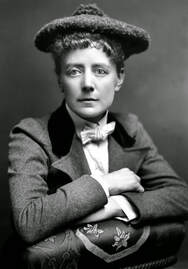
Born into a military upper middle-class family in London, Ethel Mary Smith (22 April 1858 - 8 May 1944) was educated at home and at a London boarding school. In 1877, despite her father's opposition to the idea of women studying music as a professional career, she entered the Leipzig Conservatory. In 1878 she left the school but remained in Leipzig, taking lessons and receiving encouragement for her musical ambitions from the most important musicians of the city and time: Brahms, Grieg, Joachim and Clara Schumann. Upon her return to England in the 1890’s, she found that the British musical establishment did not welcome an unconventional, German-educated female composer, and Smyth faced difficulties in obtaining public performances of her music. Her opera Der Wold, (The Forest) mounted in 1903, was until 2016 the only opera by a woman composer ever produced at New York's Metropolitan Opera. In 1911, when Smyth had attached herself to the suffragette cause she produced the anthem March of the Women. She was arrested in London in 1912, along with 100 other suffragettes, for throwing stones at the houses of suffrage opponents. While in Holloway prison, Smyth led the women in a rousing rendition of The March of Women, conducting them with her toothbrush, in what would become the most famous performance of the song. During World War I she worked as a radiologist in France, realized she was losing her hearing and after the war, turned her creative energy to writing memoirs and essays. This provided a source of income when hearing loss prevented her from composing. Later in life, she used her celebrity and campaigning abilities to fight for causes that included opportunities for British composers and women's right to play in mainstream professional orchestras. Smyth became a feminist icon.
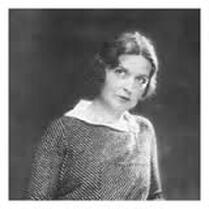
Germaine (Marcelle) Tailleferre (19 April 1892 - 7 November 1983) was the only female member of the important post-World War I group of French composers known as Les Six. She remained a prominent musician long after the disintegration of that group, during the middle and late 1920s. Tailleferre was born Marcelle Taillefesse to a family living in the outskirts of Paris. Despite having exposed her to music from an early age, Marcelle’s parents considered music to be an inappropriate activity for a young lady, and it was not until her twelfth year that she convinced them to allow her to pursue serious studies at the Paris Conservatoire. There she studied accompaniment, harmony, and counterpoint, eventually taking first prizes in each. Upon reaching adulthood, she changed her name to Germaine Tailleferre, partly to spite her father’s prohibition of her artistic pursuits. During the years following her graduation she received a few informal lessons in orchestration from Maurice Ravel, one of the most prominent French composers of the time. The work on our concert, written in 1919, emulates the musical style of Ravel, particularly in the second movement. Tailleferre had two unhappy marriages that proved a considerable drain on her creative energies. Her natural modesty and unjustified sense of artistic insecurity prevented her from promoting herself properly, and she regarded herself primarily as an artisan who wrote optimistic, accessible music as ‘a release’ from the difficulties of her private life. Even so, she left behind, at her death in 1983 at the age of 91, a large number of successful musical works and numerous film scores representing almost 70 years of active composition.
|
FOLLOW US
© COPYRIGHT 2024. ALL RIGHTS RESERVED.
|












